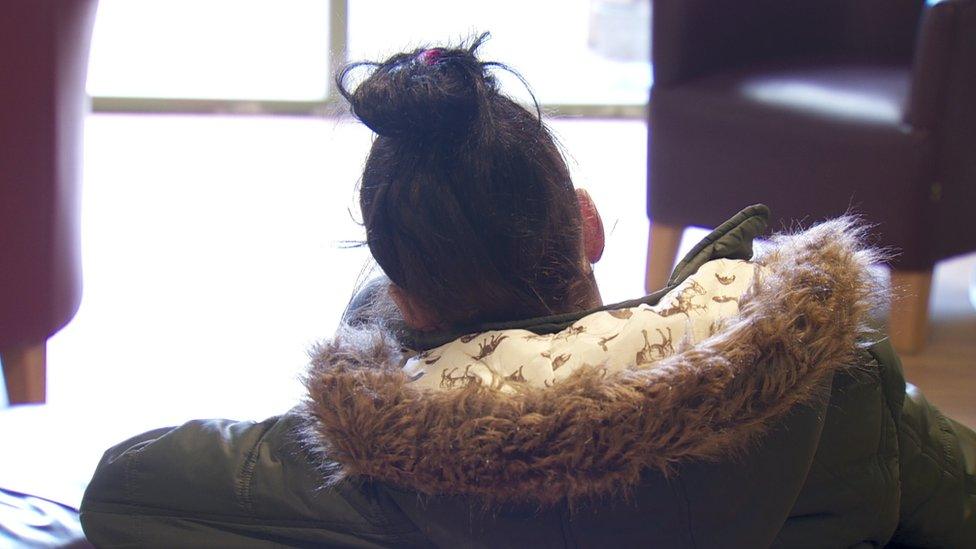Belfast exhibition captures what it means to be homeless
- Published
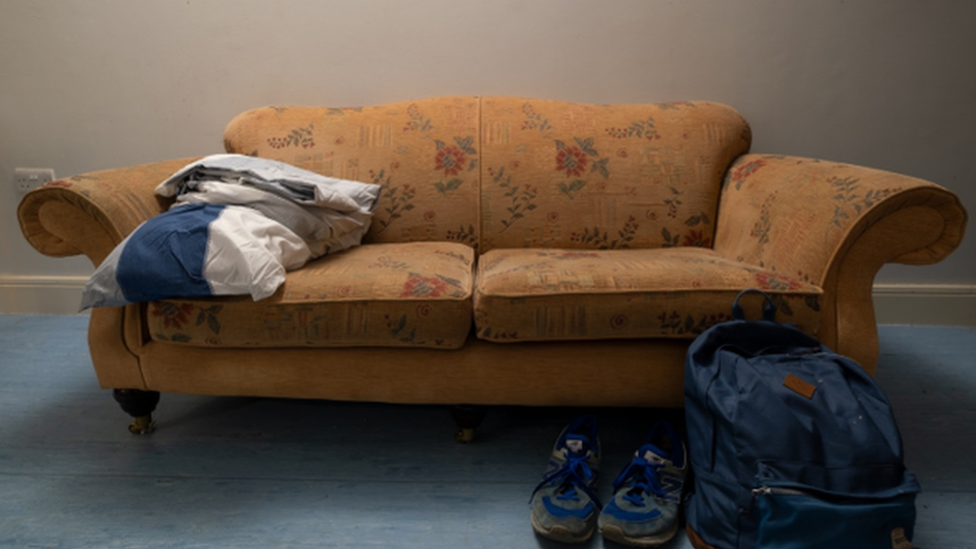
When home is a continuous sofa surf - an image from the Rosemary Street exhibition
Nobody dreams they will end up homeless, but a new exhibition lays bare the nightmare for thousands of people across Northern Ireland.
Stark photographs - many taken by people without permanent homes - are on display in the centre of Belfast.
The exhibition, Still Somebody - Voices for Change, is about giving a voice to those without one.
It is part of the city's annual Four Corners festival the theme of which is Dreams - Visions for Belfast.
"When I was growing up, my dream was not to see people living in tents or taking heroin," said Cormac McArt.
He is the director of the Westcourt Centre - a charity in Belfast that aims to promote social inclusion and reduce disadvantage through education.
The centre's camera club, working alongside people living in supported accommodation in Rosemount House, tried to capture and communicate what it means to be homeless.
Images feature shoes abandoned on doorsteps; a tent on a city street; boarded-up houses and flats; people huddled in blankets on old benches.
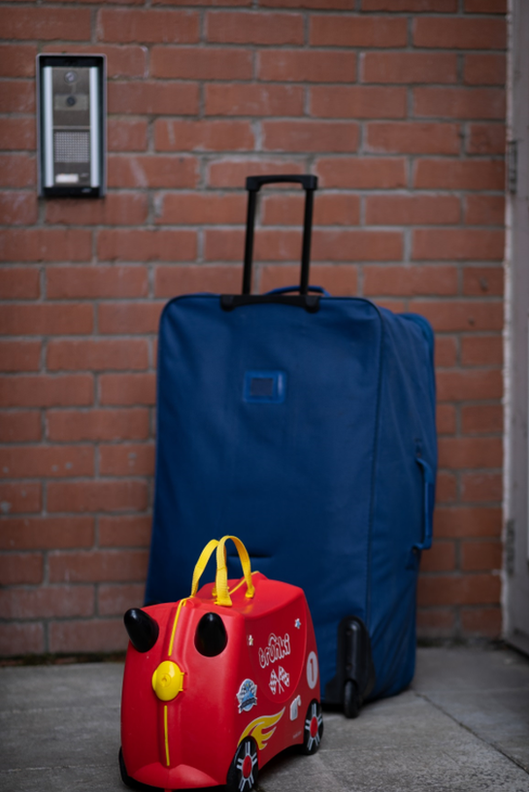
Thousands of families are in temporary or unsuitable accommodation

A screen at the exhibition plays a video featuring the anonymous voice of someone without a home, listing their feelings - "fear; isolation; hopelessness; guilt".
Cormac McArt is not new to this exploration of what homelessness means - but he has seen so much change.
He remembers the group's first exhibition in 2010. Police asked them not to go out the back where a homeless man in his 30s was found dead near the door.
"Now it's 13 years on and last year in just one week, six homeless people died," he said.
Long ago in 2008, men from the Morning Star hostel guided them into the hidden corners of the city to where homeless people were sleeping rough.
"Back then, you had to know where to look," he said. "Now it is hard to find a street in the city centre where there is no evidence of people sleeping rough."
But the huddled figure in a sleeping bag in a doorway is just one aspect of a much bigger crisis, he said.
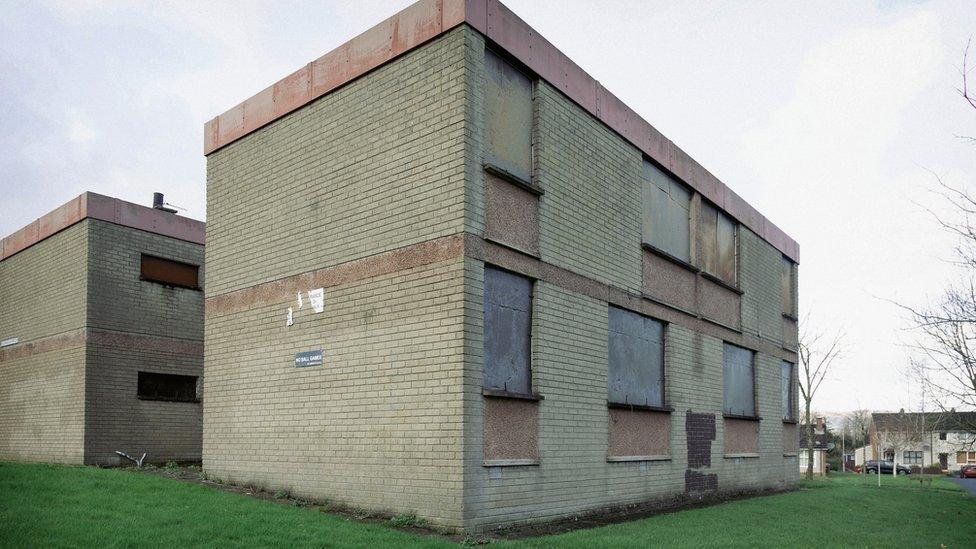
The exhibition includes photographs of buildings lying derelict while people are homeless
Cormac points to thousands of families who currently live in temporary or unsuitable accommodation.
"The largest homeless category are families... up to 36% in temporary or unsuitable accommodation," he said.
"We need more homes."
Figures published by the Housing Executive in December, external state that as of last March, the waiting list for social housing stood at 44,426 - of these 31,407 were in so-called housing stress.
However, in the year 2021-22, 533 new social housing builds had been started and 922 new dwellings completed.
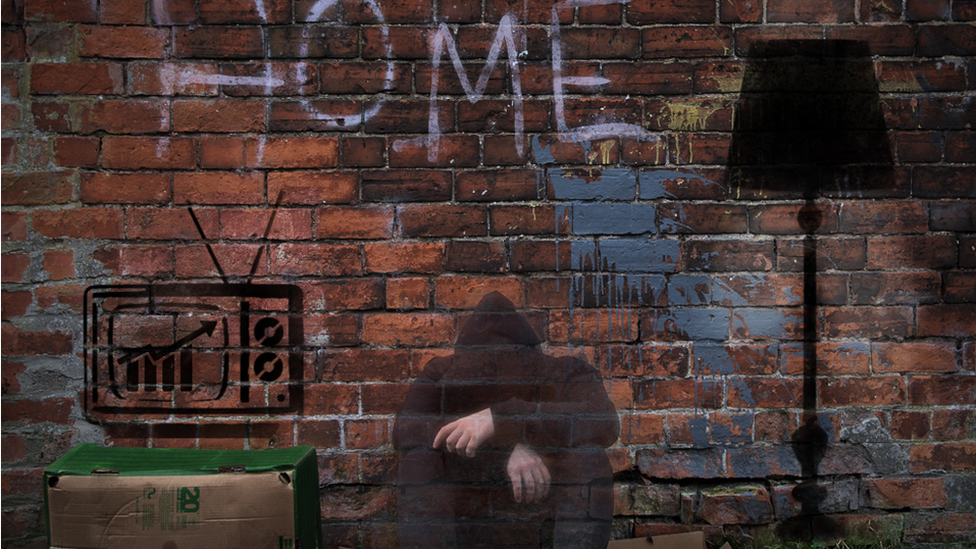
The exhibition at Artcetera Studio, on Rosemary Street in the centre of Belfast, is about inspiring people from across the city to transform it for the peace and well-being of all.
The aim is to stress the scale and scope of the problem, and show that homelessness can happen to anyone.
It runs until 5 February.
"It's about allowing them to explain what circumstances can be - to assert that it can happen to anyone and that it is not a choice," said Cormac.
"You are seeing young people on the street... how long before you see families?"
Jim Deeds, who sits on the committee for the Four Corners Festival, said it was about encouraging people to leave their own corners and get to know a different corner of Belfast.
"Homeless is also a corner," he pointed out.
"There is an epidemic of homelessness and it's nobody's dream to be homeless. We want to shine a light and make people aware of the scale of the problem."
He pointed to a photograph of a tent on the wall: "A woman died in a tent a few weeks ago... the fact that anybody dies on our streets should be front page news."
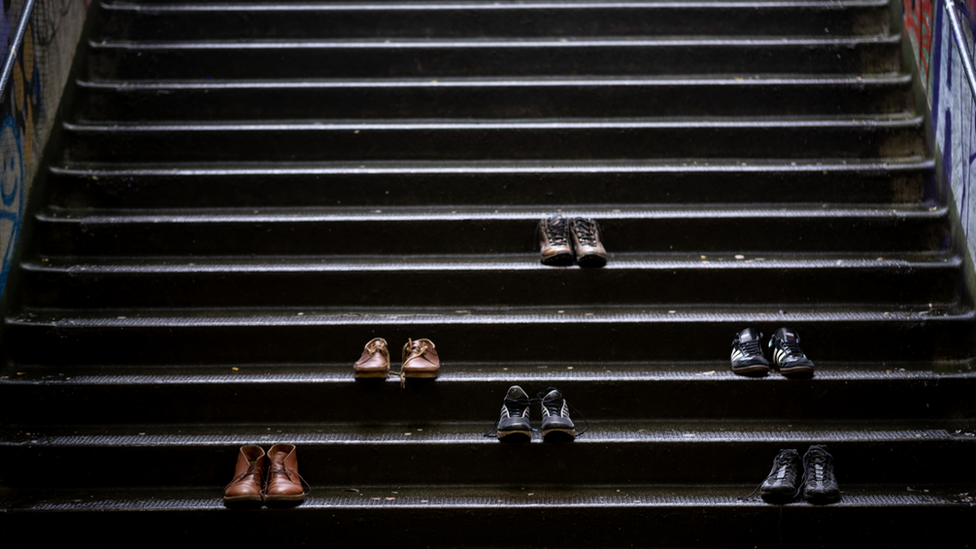
Where do you leave your shoes when you have nowhere to call home?
He said everyone who is homeless had a life story.
"There is a person there. If we can shine a light into that corner."
The Four Corners festival is about connection - if the exhibition prompted people to think more and to respond to people, then that was a win, he said.
"We want to encourage people to smile, to think, to write to their MLA or to donate ... to do something.
"We are better than this; Belfast is better than this," he said.
Related topics
- Published18 December 2022
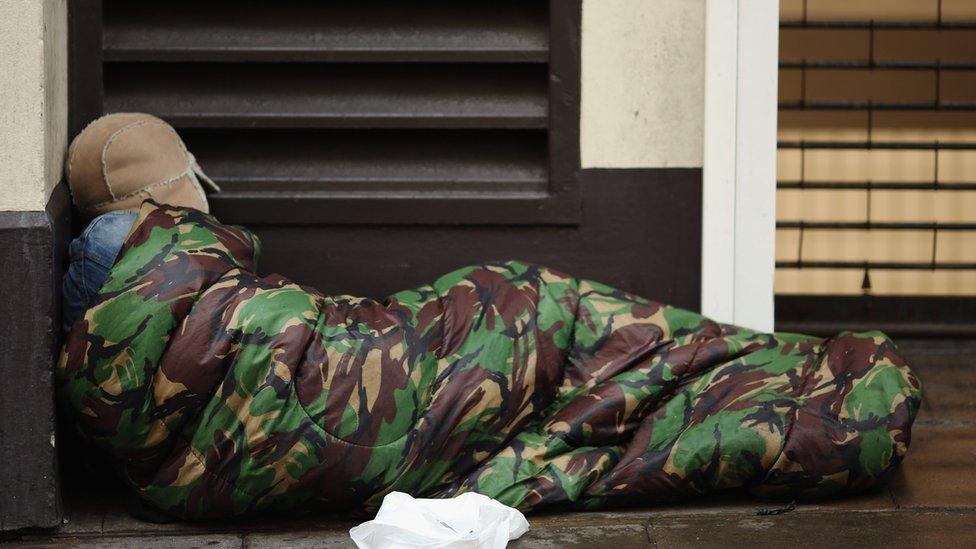
- Published27 December 2014
-copy.jpg)
- Published2 March 2022
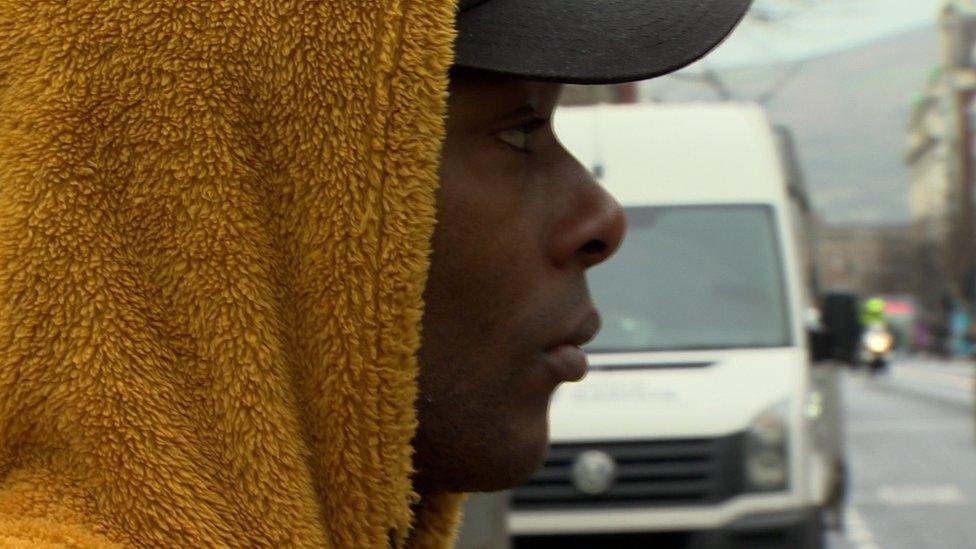
- Published9 February 2022
